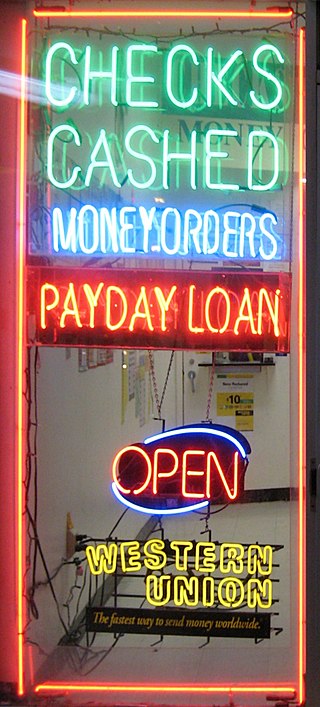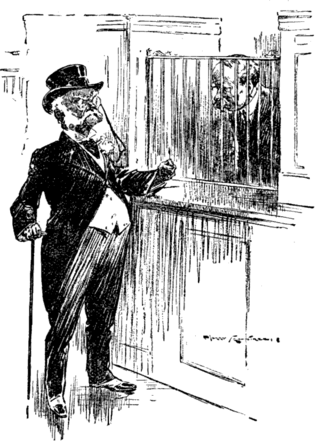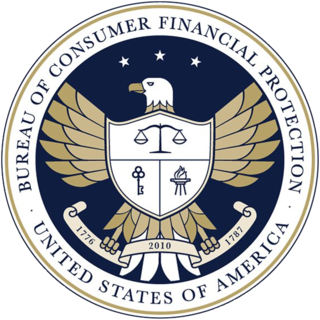Related Research Articles

A fee is the price one pays as remuneration for rights or services. Fees usually allow for overhead, wages, costs, and markup. Traditionally, professionals in the United Kingdom receive a fee in contradistinction to a payment, salary, or wage, and often use guineas rather than pounds as units of account. Under the feudal system, a Knight's fee was what was given to a knight for his service, usually the usage of land. A contingent fee is an attorney's fee which is reduced or not charged at all if the court case is lost by the attorney.

An estate agent is a person or business that arranges the selling, renting, or managing of properties and other buildings. An agent that specialises in renting is often called a letting or management agent. Estate agents are mainly engaged in the marketing of property available for sale, and a solicitor or licensed conveyancer is used to prepare the legal documents. In Scotland, however, many solicitors also act as estate agents, a practice that is rare in England and Wales.
Ticketmaster Entertainment, LLC is an American ticket sales and distribution company based in Beverly Hills, California with operations in many countries around the world. In 2010, it merged with Live Nation under the name Live Nation Entertainment.

A payday loan is a short-term unsecured loan, often characterized by high interest rates.

The Fair Debt Collection Practices Act (FDCPA), Pub. L. 95-109; 91 Stat. 874, codified as 15 U.S.C. § 1692 –1692p, approved on September 20, 1977, is a consumer protection amendment, establishing legal protection from abusive debt collection practices, to the Consumer Credit Protection Act, as Title VIII of that Act. The statute's stated purposes are: to eliminate abusive practices in the collection of consumer debts, to promote fair debt collection, and to provide consumers with an avenue for disputing and obtaining validation of debt information in order to ensure the information's accuracy. The Act creates guidelines under which debt collectors may conduct business, defines rights of consumers involved with debt collectors, and prescribes penalties and remedies for violations of the Act. It is sometimes used in conjunction with the Fair Credit Reporting Act.

The Fair Credit Reporting Act (FCRA), 15 U.S.C. § 1681 et seq., is federal legislation enacted to promote the accuracy, fairness, and privacy of consumer information contained in the files of consumer reporting agencies. It was intended to shield consumers from the willful and/or negligent inclusion of erroneous data in their credit reports. To that end, the FCRA regulates the collection, dissemination, and use of consumer information, including consumer credit information. Together with the Fair Debt Collection Practices Act (FDCPA), the FCRA forms the foundation of consumer rights law in the United States. It was originally passed in 1970, and is enforced by the U.S. Federal Trade Commission, the Consumer Financial Protection Bureau, and private litigants.

Debt collection is the process of pursuing payments of money or other agreed-upon value owed to a creditor. The debtors may be individuals or businesses. An organization that specializes in debt collection is known as a collection agency or debt collector. Most collection agencies operate as agents of creditors and collect debts for a fee or percentage of the total amount owed. Historically, debtors could face debt slavery, debtor's prison, or coercive collection methods. In the 21st century in many countries, legislation regulates debt collectors, and limits harassment and practices deemed unfair.

An overdraft occurs when something is withdrawn in excess of what is in a current account. For financial systems, this can be funds in a bank account. In these situations the account is said to be "overdrawn". In the economic system, if there is a prior agreement with the account provider for an overdraft, and the amount overdrawn is within the authorized overdraft limit, then interest is normally charged at the agreed rate. If the negative balance exceeds the agreed terms, then additional fees may be charged and higher interest rates may apply.
Payment protection insurance (PPI), also known as credit insurance, credit protection insurance, or loan repayment insurance, is an insurance product that enables consumers to ensure repayment of credit if the borrower dies, becomes ill or disabled, loses a job, or faces other circumstances that may prevent them from earning income to service the debt. It is not to be confused with income protection insurance, which is not specific to a debt but covers any income. PPI was widely sold by banks and other credit providers as an add-on to the loan or overdraft product.

The Home Mortgage Disclosure Act is a United States federal law that requires certain financial institutions to provide mortgage data to the public. Congress enacted HMDA in 1975.

The Real Estate Settlement Procedures Act (RESPA) was a law passed by the United States Congress in 1974 and codified as Title 12, Chapter 27 of the United States Code, 12 U.S.C. §§ 2601–2617. The main objective was to protect homeowners by assisting them in becoming better educated while shopping for real estate services, and eliminating kickbacks and referral fees which add unnecessary costs to settlement services. RESPA requires lenders and others involved in mortgage lending to provide borrowers with pertinent and timely disclosures regarding the nature and costs of a real estate settlement process. RESPA was also designed to prohibit potentially abusive practices such as kickbacks and referral fees, the practice of dual tracking, and imposes limitations on the use of escrow accounts.

A credit card is a payment card, usually issued by a bank, allowing its users to purchase goods or services or withdraw cash on credit. Using the card thus accrues debt that has to be repaid later. Credit cards are one of the most widely used forms of payment across the world.
Consumer protection is the practice of safeguarding buyers of goods and services, and the public, against unfair practices in the marketplace. Consumer protection measures are often established by law. Such laws are intended to prevent businesses from engaging in fraud or specified unfair practices to gain an advantage over competitors or to mislead consumers. They may also provide additional protection for the general public which may be impacted by a product even when they are not the direct purchaser or consumer of that product. For example, government regulations may require businesses to disclose detailed information about their products—particularly in areas where public health or safety is an issue, such as with food or automobiles.

The Credit Card Accountability Responsibility and Disclosure (CARD) Act of 2009 is a federal statute passed by the United States Congress and signed by U.S. President Barack Obama on May 22, 2009. It is a comprehensive credit card reform legislation that aims "to establish fair and transparent practices relating to the extension of credit under an open end consumer credit plan, and for other purposes." The bill was passed with bipartisan support by both the House of Representatives and the Senate.
The US Credit Repair Organizations Act ("CROA") is Title IV of the Consumer Credit Protection Act. Despite its name, it is not actually an act; Section 401 states, however, it can be referred to as "Credit Repair Organizations Act". The statute was signed by President Bill Clinton on September 30, 1996. The law was intended to prevent credit repair organizations from engaging in unfair business practices which may result in financial hardship for consumers, particularly those of limited economic means or who are uneducated.
Data as a service (DaaS) is a cloud-based software tool used for working with data, such as managing data in a data warehouse or analyzing data with business intelligence. It is enabled by software as a service (SaaS). Like all "as a service" (aaS) technology, DaaS builds on the concept that its data product can be provided to the user on demand, regardless of geographic or organizational separation between provider and consumer. Service-oriented architecture (SOA) and the widespread use of APIs have rendered the platform on which the data resides as irrelevant.

The Consumer Financial Protection Bureau (CFPB) is an independent agency of the United States government responsible for consumer protection in the financial sector. CFPB's jurisdiction includes banks, credit unions, securities firms, payday lenders, mortgage-servicing operations, foreclosure relief services, debt collectors, and other financial companies operating in the United States. Since its founding, the CFPB has used technology tools to monitor how financial entities used social media and algorithms to target consumers.

A payday loan is a small, short-term unsecured loan, "regardless of whether repayment of loans is linked to a borrower's payday." The loans are also sometimes referred to as "cash advances," though that term can also refer to cash provided against a prearranged line of credit such as a credit card. Payday advance loans rely on the consumer having previous payroll and employment records. Legislation regarding payday loans varies widely between different countries and, within the United States, between different states.
A resort fee, also called a facility fee, a destination fee, an amenity fee, an urban fee, or a resort charge, or a hidden hotel booking fee is an additional fee that a guest is charged by an accommodation provider, usually calculated on a per day basis, in addition to a base room rate.

LendUp was an American online direct lender. It offered payday loans, installment loans, and credit cards to consumers with low credit scores using publicly available data to assess creditworthiness. The company referred to its customers as “the emerging middle class.” LendUp also issued credit cards in partnership with Tom Steyer's Beneficial State Bank.
References
- ↑ Archived at Ghostarchive and the Wayback Machine : Daniel Rosen: Comedian and Entertainer - Television Clips. YouTube .
- ↑ "New Announcer To 'Come On Down' On 'The Price Is Right'". Wireless Flash News. 2003-12-29. Archived from the original on 2008-05-17. Retrieved 2008-02-29.
- ↑ "CFPB Sues Software Company That Helps Credit-Repair Businesses Charge Illegal Fees". Consumer Financial Protection Bureau. 20 September 2021. Retrieved 2021-10-31.